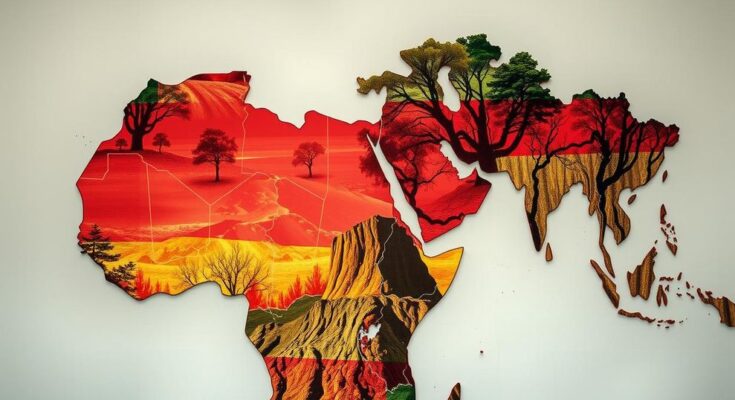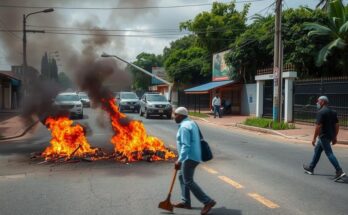In Southern Africa’s 2024 elections, long-governing liberation parties faced significant electoral challenges, particularly due to rising youth discontent and demands for accountability. Key outcomes included the Botswana Democratic Party losing power, the ANC in South Africa losing its majority, and SWAPO in Namibia barely retaining control. Protests were ignited in Mozambique over election results favoring the ruling party, illustrating broader regional unrest and a demand for change.
In 2024, Southern Africa witnessed significant political shifts during its elections, marking a departure from traditional political structures. Long-established liberation parties faced increasing challenges, particularly as younger voters, who have no personal recollections of colonial rule, emerged with demands for economic opportunities and governing accountability. For example, in Botswana, the ruling Botswana Democratic Party lost its long-held dominance to opposition forces amid rising youth unemployment, showcasing a broader trend of diminishing support for historic parties. Similarly, the African National Congress (ANC) in South Africa lost its majority for the first time since apartheid ended, signaling a critical juncture in the nation’s political landscape. The SWAPO in Namibia narrowly retained its majority, while protests erupted in Mozambique following elections that reinforced the ruling Frelimo party’s nearly fifty-year rule, highlighting increasing discontent among citizens. This electoral cycle reflects a changing political tide characterized by younger electorates prioritizing governance performance over historical allegiances, catalyzing a broader regional demand for responsive leadership.
The political landscape in Southern Africa has traditionally been dominated by liberation parties that led the fight against colonial rule. Democracy in the region has remained relatively stable compared to other areas in Africa, where military coups and conflicts are more prevalent. However, economic frustrations, particularly among the younger population, have begun to challenge the goodwill previously enjoyed by these long-governing parties. The 2024 elections serve as a crucial indicator of changing voter dynamics and political priorities in the region.
The elections of 2024 in Southern Africa marked a significant shift in political dynamics, reflecting the desires of a younger population for greater accountability and performance from their governments. The emerging trends suggest that liberation parties, once unassailable, are increasingly vulnerable to electoral challenges as voter expectations evolve. The events in countries like Botswana and South Africa are likely to influence future political developments across the region, underscoring the necessity for incumbent parties to address the needs of their constituents.
Original Source: apnews.com




